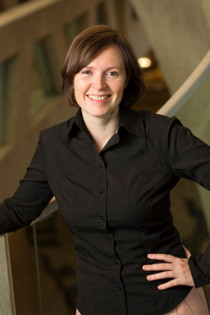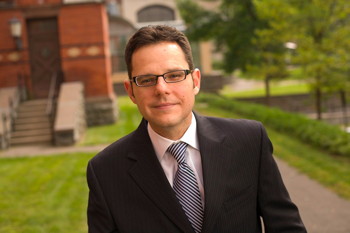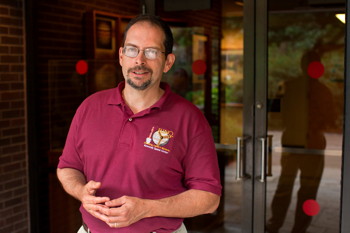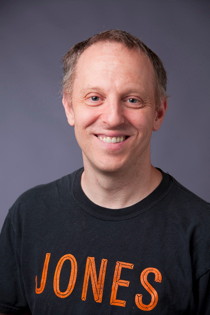NEW FACULTY
Q&A with new members of the faculty

Caroline O'Donnell See larger image
Of the approximately 70 new faculty members hired this academic year, seven have been appointed to named professorships, an honor accorded to a handful of eminent scholars. Here are four of them and their answers to Ezra's questions.
Caroline O'Donnell is the first Richard Meier Assistant Professor of Architecture in the College of Architecture, Art and Planning. She first came to Cornell in 2008 as a visiting critic.
Under her direction, last year the college revived its architecture journal for the first time in eight years.
Why Cornell?
Why I came and why I am still here is simple: It's the best school of architecture in the country and is internationally renowned. I am surrounded by fantastic students and faculty, and together we produce some of the best design work, writing and conversations in the architectural world. I am interested in the combination of practice, teaching and writing, on issues related to context, and this seemed like the ideal place for that.
Murillo Campello, the new Lewis H. Durland Professor of Management at the Samuel Curtis Johnson Graduate School of Management, was most recently a professor at the University of Illinois at Urbana-Champaign.

Murillo Campello See larger image
How do you describe your work to non-academics?
I like to find (often hidden, overlooked) links between financial decision-making at firms and the larger macro-economic environment. I think this second-nature approach to research is rooted in my experiences as a young man in Brazil, where the corporate sector was so dependent on developments in the macro and global economy (think hyper-inflation, currency devaluation, debt crises, intervention). The business environment and even the rules of business decision-making change almost every day in emerging economies.
Jonathan I. Lunine is the David C. Duncan Professor in the Physical Sciences in the Department of Astronomy in the College of Arts and Sciences. Lunine comes to Cornell from the University of Rome and the University of Arizona.

Jonathan Lunine See larger image
What's new in your area of expertise, planet formation?
Astronomy has gone through a revolution. One development is the enormous number of planets outside of our solar system. It was not unexpected that we would find planets, but the number and variety are amazing. This challenges our ability to make models of how they form. We don't have cubical or triangular planets – they're all spherical – but in terms of density and how they orbit their stars, nearly everything is possible.
In our own solar system, particularly in the outer system, we've discovered several environments where life might exist. That gives us an impetus to go back to those places with new missions. Around Saturn, for instance, the Cassini mission has for nearly eight years been in orbit around Saturn. I'm involved in designing a new mission to land on Titan, the largest moon of Saturn, where there are vast seas of liquid methane the size of Lake Superior. We want to land there and see what's in those seas. We know already that they contain 10 times more natural gas than the known reserves on Earth (too expensive to extract, of course!). This would be the first nautical expedition on another world.

Theodore Sider See larger image
Theodore Sider is the new Frederick J. Whiton Professor of Philosophy in the College of Arts and Sciences. One of the most prominent American philosophers of metaphysics and the philosophy of philosophy itself, Sider is the author or co-author of four books, including "Riddles of Existence," which The New York Times called "a series of hors d'oeuvres for intellectual diners." He comes to Cornell from New York University.
Are you designing any new courses for Cornell students?
I am planning a new course called Logic for Philosophy, which will be offered to graduate and undergraduate students. It's based on a textbook I wrote, by that same title. Formal logic – the mathematical study of correct argumentation – is a tool that's used throughout philosophy. It's important for philosophy students to be fluent in the language of logic, since lots of contemporary philosophy uses that language; but logic can sometimes be daunting to students, especially those who haven't studied much mathematics. The idea of the course is to introduce students in a user-friendly way to the kind of logic they need to get by in philosophy.